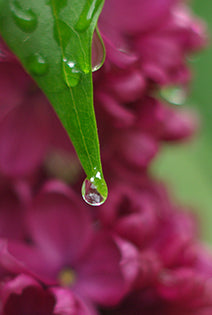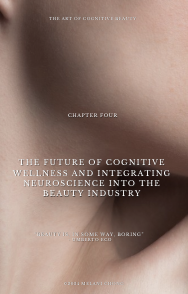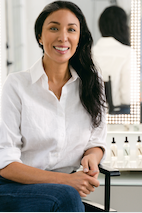Natural -vs- Synthetic - Uncovering the Facts Part 1

As consumers, people are washed in natural and organic advertising which influences us to think that "all-natural" products are possibly more healthy than synthetic ingredients and that synthetic means dangerous. This long lingering idea has been based on unsubstantiated data that has driven consumers fears of synthetic materials. The growing popularity of this topic shows some need for scientific clarification. The lack of knowledge and polarization surrounding synthetic materials is outdated and simply a matter of misinformation. A direct comparison between a natural and synthetic molecules and structures that make up these natural materials needs to be considered on an individual basis.
Everything is a chemical. Water is a chemical (H2O), vitamins are complex chemicals, simple, one ingredient herbal extracts are volatile complex chemicals, therefore there is no such thing as chemical-free products. Although, there can be certified natural ingredients, those from plants are considered by scientists to be extremely volatile chemicals that are known allergens, disruptors and pose issues when formulating.
Natural chemicals are produced by nature (some agricultural) without using human intervention. Synthetic chemicals are made by human specialists using methods not found in nature, and these chemical structures may or may not be found in nature. This definition means a synthetic chemical can be made from a natural product (eg, naturally derived). Note that in the food industry, “artificial” is used instead of “synthetic”.
Natural materials borne of raw plant materials are prominent in the market, a rise in certified natural products have risen 13% according to The Soil Association UK. Natural ingredients can be considered those that are refined through science like retinol, hylauronic and lactic acids which are "plant actives" and only achievable with molecular reconstruction - synthesized, precisely, to be safe for the intended use and intended thing - for use by humans and sometimes for animals.
These ingredients are dominating the market with 70% of consumers whose choose to prioritize green products and 40% of those people who will pay more for those product options on the shelf according to Scientific American. Natural and green products have seen massive growth, 13% globally over the past 4 years in women's and men's cosmetics. But what exactly are you "buying" into? Natural products come from nature, synthesized products come from nature and are refined to be safe, non-allergenic and green.
This natural choice does not come without some sort of marketing influence that sways what consumers will believe is best for them or a perceived natural brand. This is not enough information for a well rounded choice in this situation. It can actually be dangerous and fickle in terms of what we are to believe is green when it comes to green products. Possibly volatile, actively ineffective, leaving a large carbon footprint, "natural ingredients come with a caveat, natural raw materials need to be used with caution. Is it good for personal use? It this natural material non-bioaccumulative (collecting in the body or the environment over long periods of time), made with molecular efficiency (use less water, energy and natural resources to achieve the final product)? This is information green and natural product marketing may not be specific about.
Now, let's talk about that term, "green". What does this refer to? Is is from a green plant, a "green" manufacturer? Rather, is it referring to a protocol to which formulators and scientists adhere according to when designing a product that follows the principles of green chemistry.
This makes science backed beauty brands ahead in the game and finding cult recognition for putting the science in the beauty and beauty in the science.
Also in MC2 BLOG

Welcome to The Future of Neuro Beauty
The understanding of Cognitive Beauty opens new possibilities for beauty treatments that go beyond surface-level aesthetics and delve into the underlying neurobiology of beauty and the diverse world of aesthetics.

Your Skin Is A Quantum Communicator
Your skin is a sensory force field, constantly receiving and emitting powerful signals. It’s how you interact with the world and how the world interacts with you.
Your skin is a quantum communicator—it picks up vibrations, temperature changes, even emotional energy from others - Melani Chong

The Skin - Brain Axis - How It works
Melani Chong Neuro Beauty Expert ::: The Skin-Brain Superhighway
Did you know your skin and brain have a hotline to each other? Yep, they're chatting 24/7 through a superhighway of nerves and biochemicals. Stress, mood, and even how well you sleep can affect your glow-up game.
Because understanding this connection gives you the power to take control of your skin's story. Managing stress, sleeping well, and using neurocosmetic ingredients can help keep both your mind and skin in harmony.

